7 Keys to Help You Age Gracefully
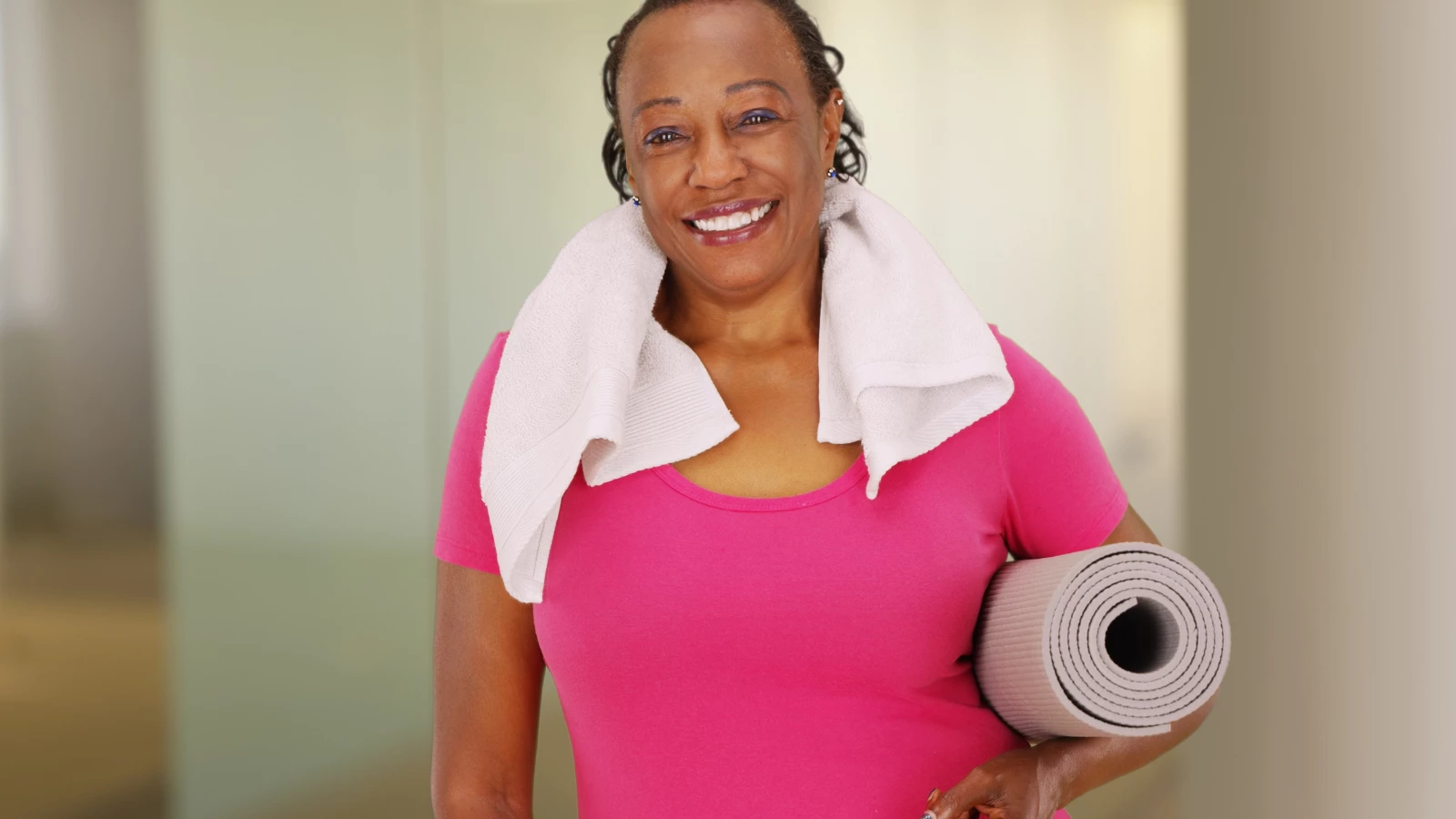
Article At A Glance
With age comes wisdom and grace. As a yoga therapist, I’ve worked with many people in their 60s, 70s, 80s, and even 90s. Most come with health concerns. But overwhelmingly, they come with a desire to age gracefully. Along the way, I’ve learned a valuable lesson from these “graceful agers,” about how to grow older with vitality and strength of body and mind.
1. Aging is a State of Mind
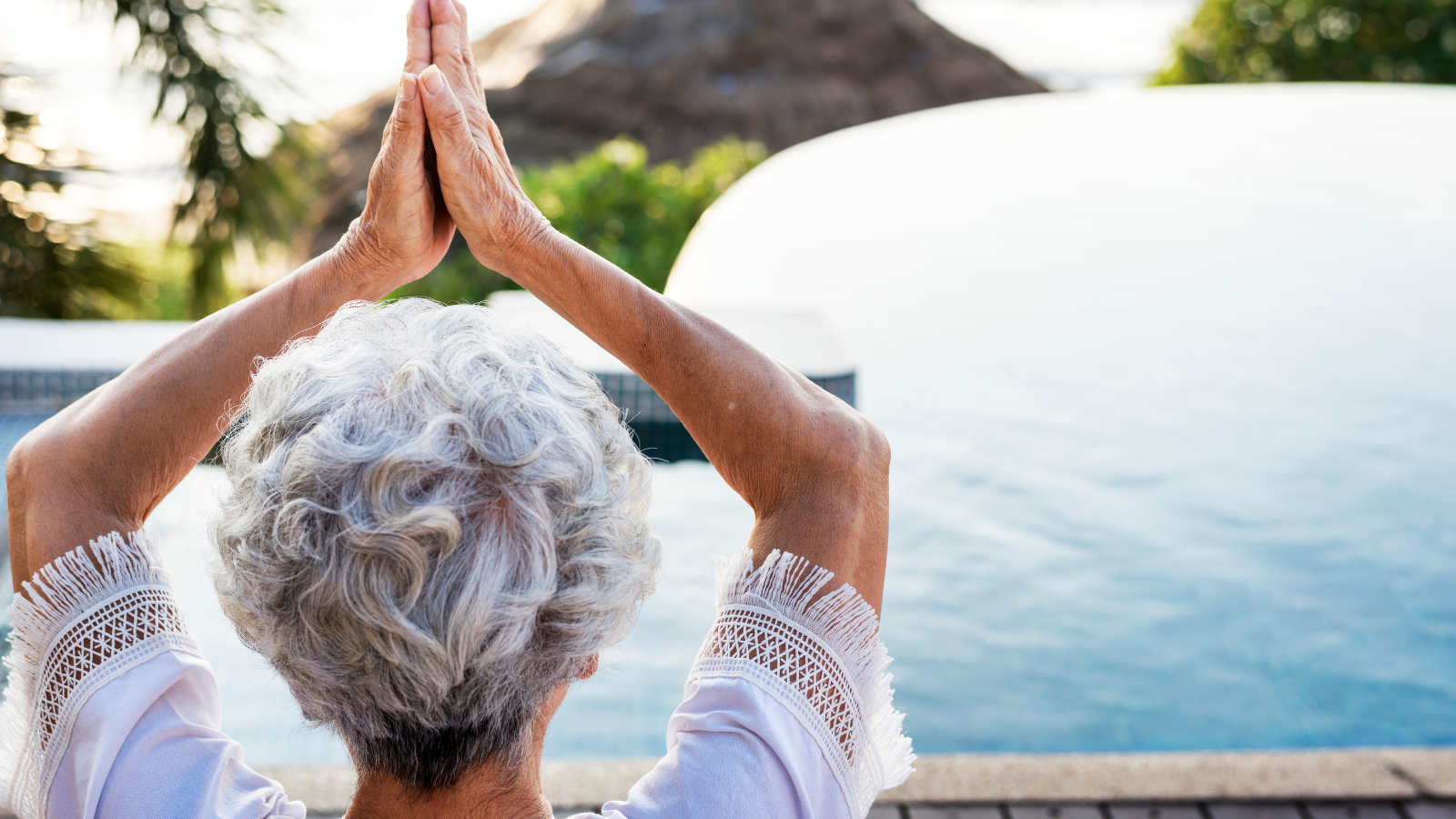
The first lesson I’ve learned is that aging is a state of mind. I’ve met people in their 60s who seemed very old, and 80 to 90-year-olds who appear to be much younger and more vital than you would expect. What is the difference?
People who age gracefully have a love for life. They get out of their house, exercise, socialize, volunteer, and generally have places to go and things to do. For example, one woman in her early 80s is an avid tennis player who also plays bridge several times a week.
Contrary to what you might think, she, like so many other graceful agers has had her share of challenges and hardships, as well as health problems and limitations that affect her lifestyle. The difference is that despite the curveballs life has thrown her, she endeavors to stay active, and engaged, and maintains an upbeat, positive attitude. A good sense of humor also goes a long way.
From a yoga perspective, this positive state of mind is the essence of equanimity. Defined as “mental calmness, composure, and evenness of temper, especially in a difficult situation,” equanimity is one of the primary goals of yoga. Through acceptance of the changing nature of life, equanimity teaches us to accept both the good and the bad equally and without attachment. It is the basis for the resilience that can come with age and experience.
2. Tend to Your Emotional Health

The second lesson my students have taught me is that emotional well-being goes hand in hand with aging gracefully. Have you ever noticed that when you are happy, you feel more energetic and healthy? It’s no accident. Good mental health positively affects your physical health. In return, poor mental health can have negative consequences on your physical wellbeing.
Strong emotions, such as anger, depression, fear, anxiety, grief, and intense longing can increase the risk of heart attacks and stroke. In fact, depression has been linked to many chronic illnesses such as diabetes, asthma, cancer, cardiovascular disease, and arthritis.
Why is this? Structures in our brains known as the limbic system, act as a control center for conscious and unconscious functions, regulating much of what the body does. For example, when stressed, the amygdala, the part of the brain that regulates emotions, initiates our fight-or-flight response. This signals the adrenal glands to release hormones such as epinephrine that raise blood pressure and heart rate, improve blood flow to muscles and organs, and elevate breathing rate.
In the short term, the fight-or-flight response can be life-saving. However, over time, chronic stress can activate the limbic system in a way that damages the body. Long-term release of epinephrine and other hormones can damage blood vessels, cause high blood pressure, lower our immune response and change our appetite.
Graceful agers manage their emotions well and have greater resilience, too. Regular yoga practice supports this. Through our practice, we realize that we are not a brain living inside a body, but that mind and body are interconnected. Through awareness and self-study (known as Svadyhaya in yoga), we learn to attend to our inner, emotional landscape.
3. Aging Gracefully: Motion is Lotion
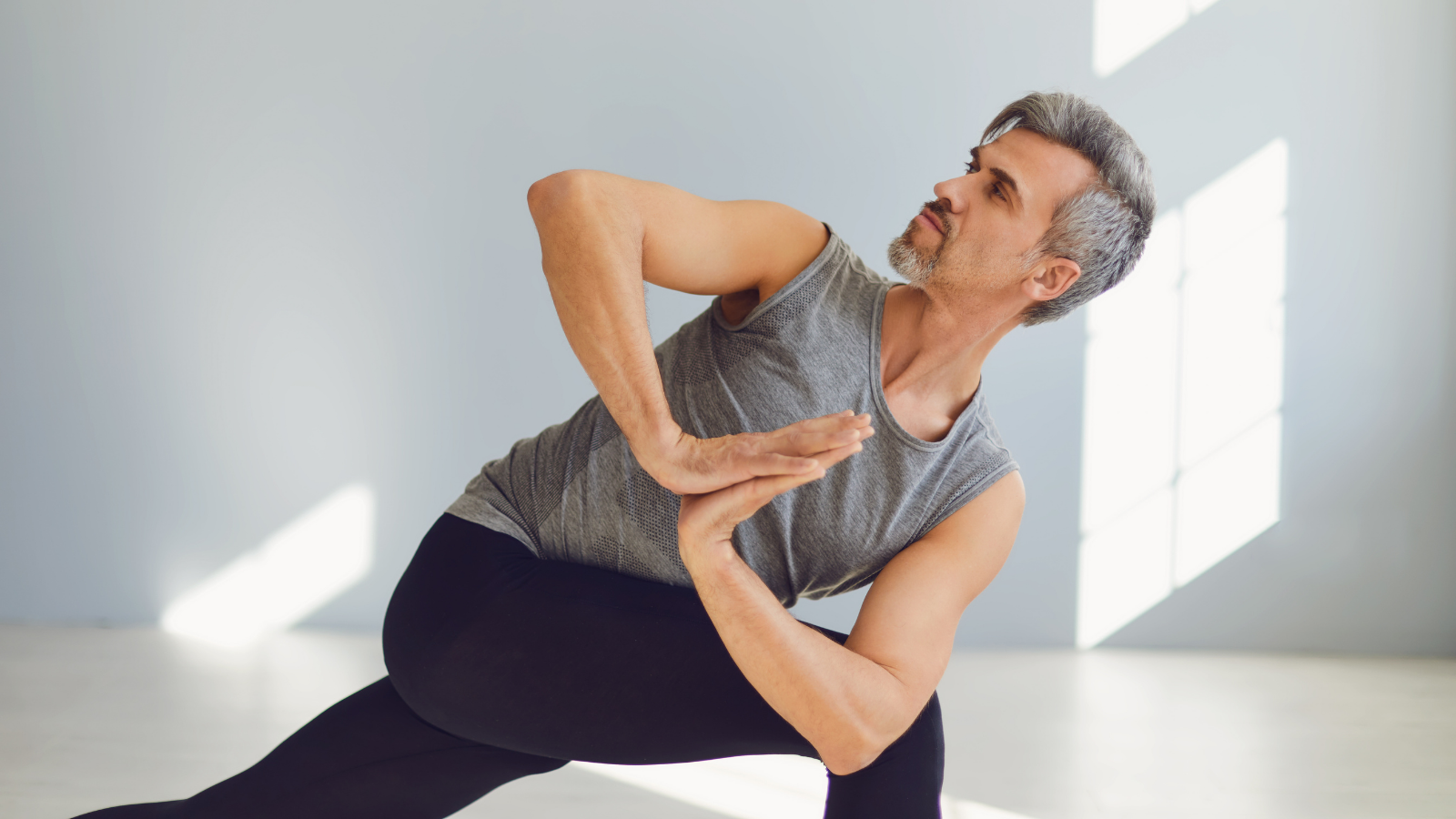
Movement is critical to aging well. And as an old Chinese proverb says, “Where there is no movement, there is pain. But where there is movement, there is no pain.”
If you’ve ever attended one of my yoga classes, you’ve heard me say this phrase: motion is lotion. One of the best things you can do for the health of your body is to move it. Exercise not only improves your mood, reduces stress, improves the health of your lungs and heart, and brings your blood pressure down, but it also keeps your joints and muscles mobile.
Graceful agers seek out opportunities to keep moving because they know it increases mobility as well as range of motion and decreases pain. Simple, everyday activities like walking, swimming, gardening, and dancing can ease some of the pain directly by blocking pain signals to the brain. Activities like yoga also help lessen pain by stretching stiff and tense muscles, ligaments and joints.
Yoga is particularly beneficial for older adults as an accessible and gentle form of movement. In fact, studies suggest that doing yoga regularly can slow physical aging and the harmful impact of stress at the cellular and DNA levels. Many conditions are associated with accelerated cellular aging, such as depression and heart disease.
According to the Arthritis Foundation, people with various types of arthritis who practice yoga regularly can reduce joint pain, improve joint flexibility and function, and lower stress and tension to promote better sleep.
4. Listen to Your Body
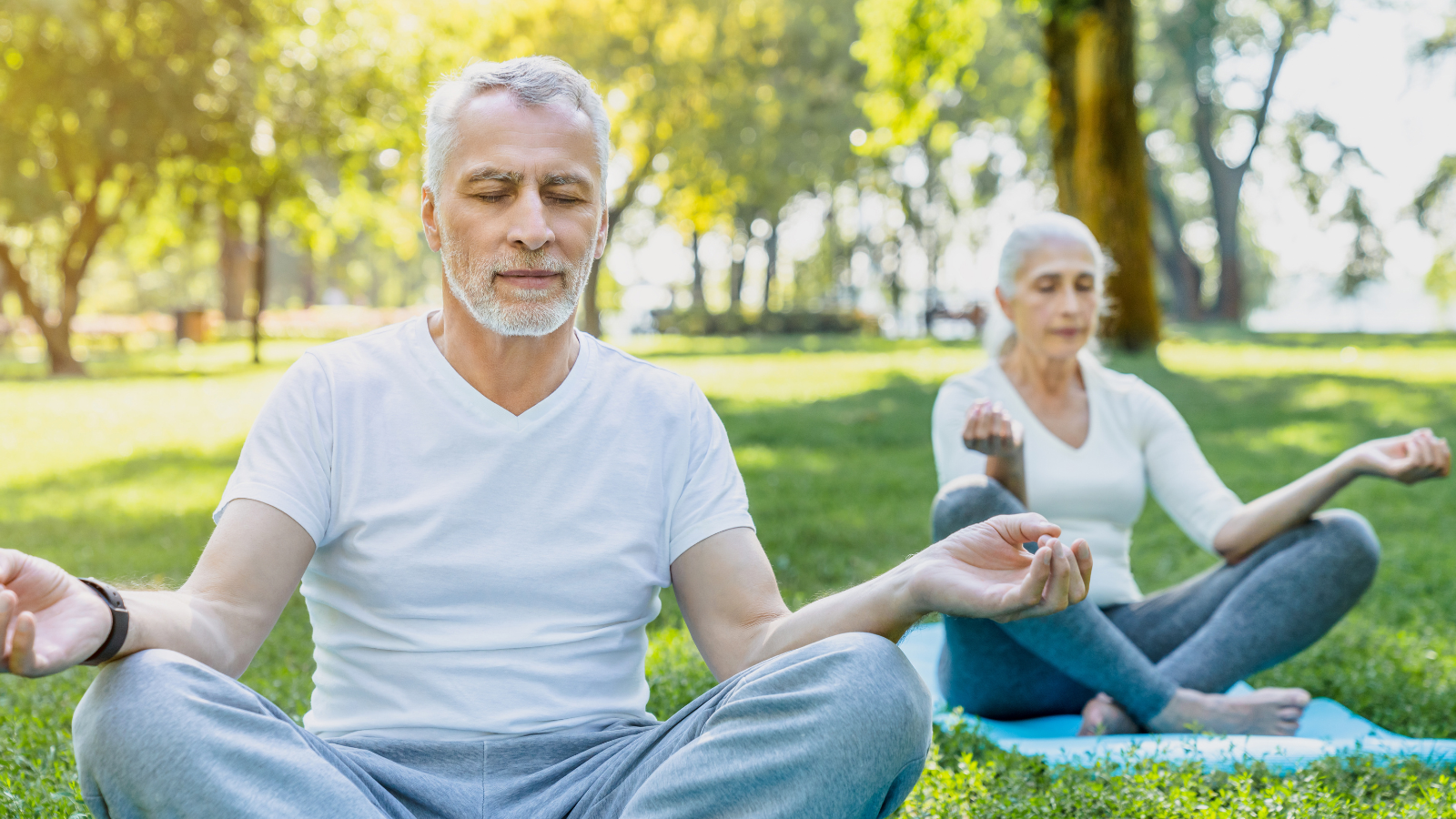
The fourth healthy aging lesson they’ve taught me is listening to and taking care of your body. Poor dietary habits, too much work, poor sleeping habits, and stressful relationships are all sources of stress. That stress frequently shows up as digestive issues, exhaustion, insomnia, or high blood pressure.
Paying attention to these signals is a skill known as interoception. When we pause in a yoga class to notice how a pose or breath practice feels in our body, we are strengthening our interoceptive awareness, which is a key component of resilience. Repeatedly, those most adept at these skills seem to age gracefully. They use this information to shift and make choices that support their mental, physical, emotional, intellectual, and spiritual health.
As a corollary to this, those who age gracefully know that when we become ill (and we all do periodically), unless we change the behaviors that are making us sick, we will never completely heal. Our bodies send signals when things are amiss long before we actually get sick. When we ignore these messages, they continue to get louder and louder until we can’t ignore them anymore. In most cases, illness is your body’s loudspeaker after a string of polite, but ignored messages. The message from active, graceful agers: listen up.
5. Age GracefullY: Make Time for Self-Care
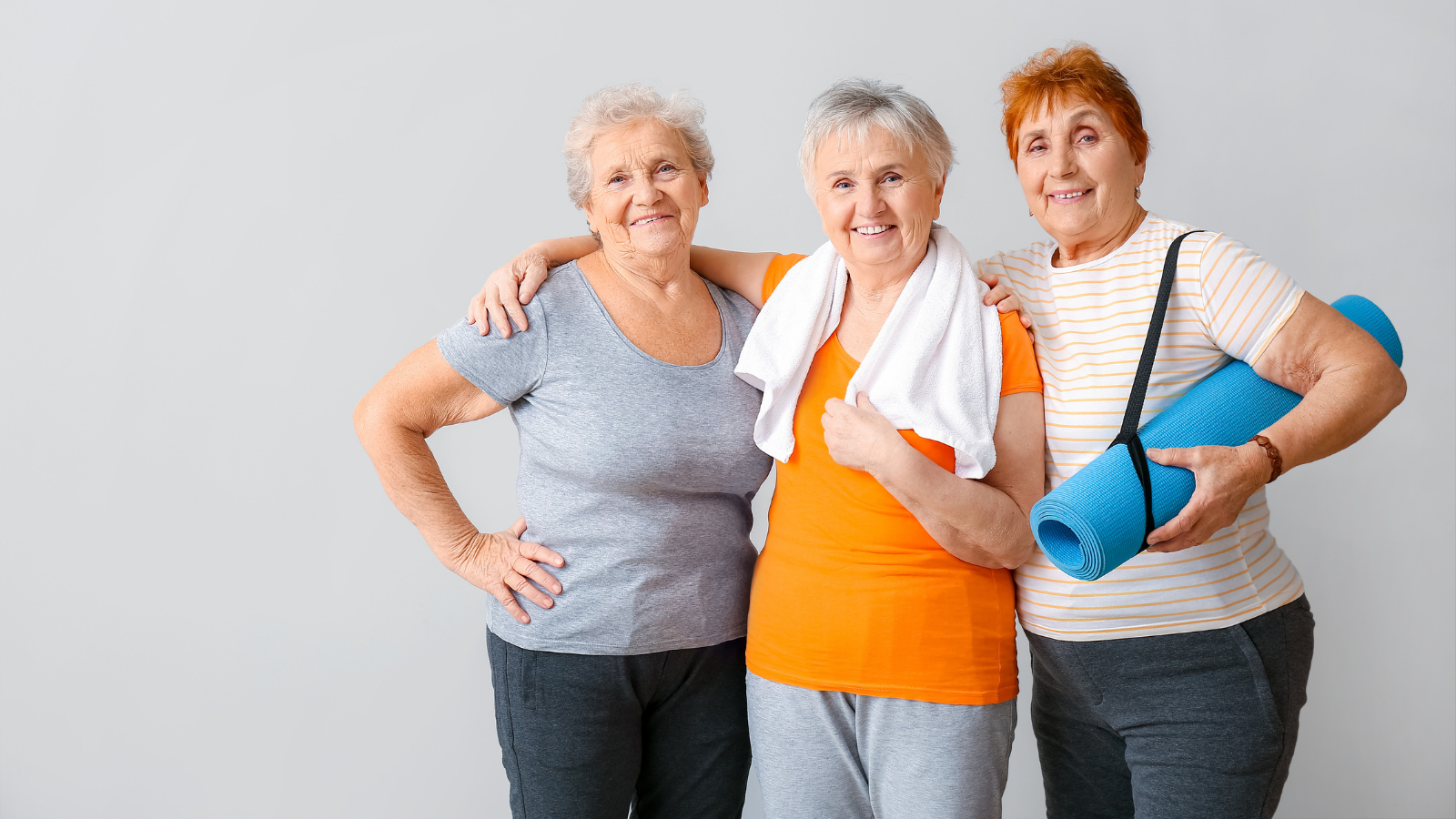
Self-care is akin to putting on your oxygen mask before helping someone else put on theirs. Your body is not something to outsmart, overcome, or be whipped into shape. It’s the vessel that houses your spirit. People who age well make caring for their bodies a priority. This means eating well, getting 7 to 8 hours of sleep each night, engaging in activities that bring you joy, having healthy, mutually satisfying relationships, and cultivating your mind and spirit all contribute to self-care.
6. Stay Curious to Age Gracefully

The sixth secret to helping you age gracefully is that learning is never complete. Graceful agers are curious about life, and therefore, lifelong learners.
Healthy aging includes maintaining brain health by engaging in activities that expand your knowledge and skills through creative, stimulating mental activities. One way to do this is to learn something new, such as how to play pickleball, speak conversational French, or meditate.
Many of my students come to yoga as beginners in their 70s and 80s. Learning to control their breath and move in new ways keeps their minds alert and active. In fact, research shows that seniors who regularly practice yoga experience reduced stress levels and increased mental clarity, as well as less anxiety and depression. At the same time, yoga classes provide an opportunity for social engagement with others, another important element of aging gracefully.
Additionally, science tells us that our brains continue to create new neural pathways throughout our lives. By pursuing personal interests, developing intellectual curiosity, and staying on top of current issues and ideas, we can challenge our minds and continue to maintain good cognitive health.
7. Laugh Every Day
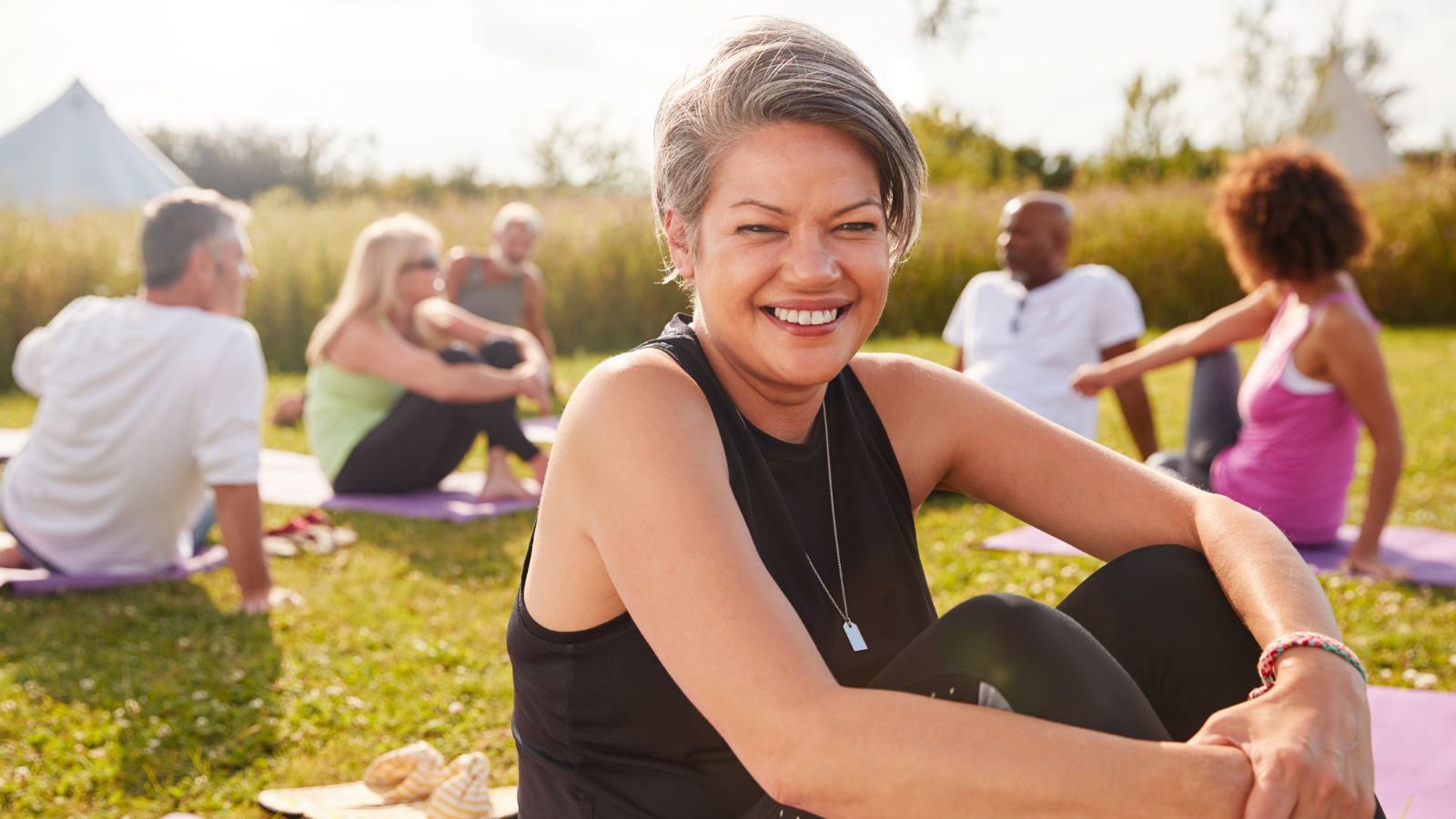
The final lesson my students have taught me is to laugh every day. Healthy, graceful agers have a sense of humor and laugh often, including at themselves. It is their ability to laugh that enables them to weather life’s stressful events.
Laughing has health benefits, too. According to the National Institutes of Health (NIH), laughter relieves physical tension, lessens pain, boosts immunity, improves blood circulation, and increases lung capacity. In fact, a Norwegian study found that people with a good sense of humor actually lived longer.
Aging isn’t a choice, but how we age is. Yoga gives us tools for keeping our bodies active, our minds open and stimulated, and our hearts at ease. Here’s to aging gracefully!
Also, read...
Smooth Transitions: 9 Ayurvedic Tips for Moving into Spring
May 28 – By: Susanna Barkataki
Yoga and Body Image: How Yoga Can Help You Make Friends with Your Body
May 14 – By: Kimber Simpkins
Free Yoga Video: Breathing for Pelvic Floor Health: Two Practices to Deepen Your Breath
May 06 – By: YogaUOnline Staff
Related courses
Breath as Medicine: Yogic Breathing for Vital Aging
With Doug Keller
Yoga and Myofascial Release: Releasing Chronic Tension with the Bodymind Ballwork Method
With Ellen Saltonstall
Reprinted with permission from Beverly Davis-Baird and WisdomTreeYoga.com

Beverly Davis-Baird, MA, e-RYT200/RYT 500, C-IAYT is a New Jersey-based yoga therapist, writer, and educator. She specializes in making yoga accessible for adults 50+, offering classes and workshops for back care, arthritis, bone health, balance, posture, and healthy aging. An educator at heart with over 20 years of experience as a public school teacher, Beverly brings her knowledge of individual learning styles to her classes, providing instruction that is clear, concise, inclusive, and compassionate. Bringing over 30 years of experience and training, she considers herself a lifelong learner and believes that the practice of yoga should bring spaciousness and release from tension, not create it. As such, she strives to make yoga accessible to people of differing abilities, believing the real benefits of yoga come from what is taken with you outside of class and into your life. To read her blog or learn more about her teaching schedule and latest offerings, please visit www.wisdomtreeyoga.com.
Recent articles
4 Ways to Practice Locust Pose
Jun 26 – Baxter Bell, MD, eRYT 500, C-IAYT
The Yoga Sutras: Practicing Non-Attachment without Becoming Detached
Jun 24 – By: Tracy Weber, C-IAYT, E-RYT 500
4 Easy Ways to Use a Sandbag in Yoga Practice
Jun 18 – Jennifer Williams-Fields E-RYT 200
Categories
Upcoming courses
Breath as Medicine: Yogic Breathing for Vital Aging
With Doug Keller
Yoga and Myofascial Release: Releasing Chronic Tension with the Bodymind Ballwork Method
With Ellen Saltonstall
JOIN NOW!
Recent articles
Almost there...
Sorry, we couldn't find anything...
Pose Library
4 Ways to Practice Locust Pose
Locust Pose (Salabhasana) is a simple backbend that strengthens the entire back of your…
Jun 26 – Baxter Bell, MD, eRYT 500, C-IAYT
Beginning Yoga
The Yoga Sutras: Practicing Non-Attachment without Becoming Detached
The concepts of attachment and non-attachment are mentioned several times in The Yoga Sutras…
Jun 24 – By: Tracy Weber, C-IAYT, E-RYT 500
Yoga Practice Tips
4 Easy Ways to Use a Sandbag in Yoga Practice
B.K.S. Iyengar is credited with introducing props into modern yoga as a means of…
Jun 18 – Jennifer Williams-Fields E-RYT 200



